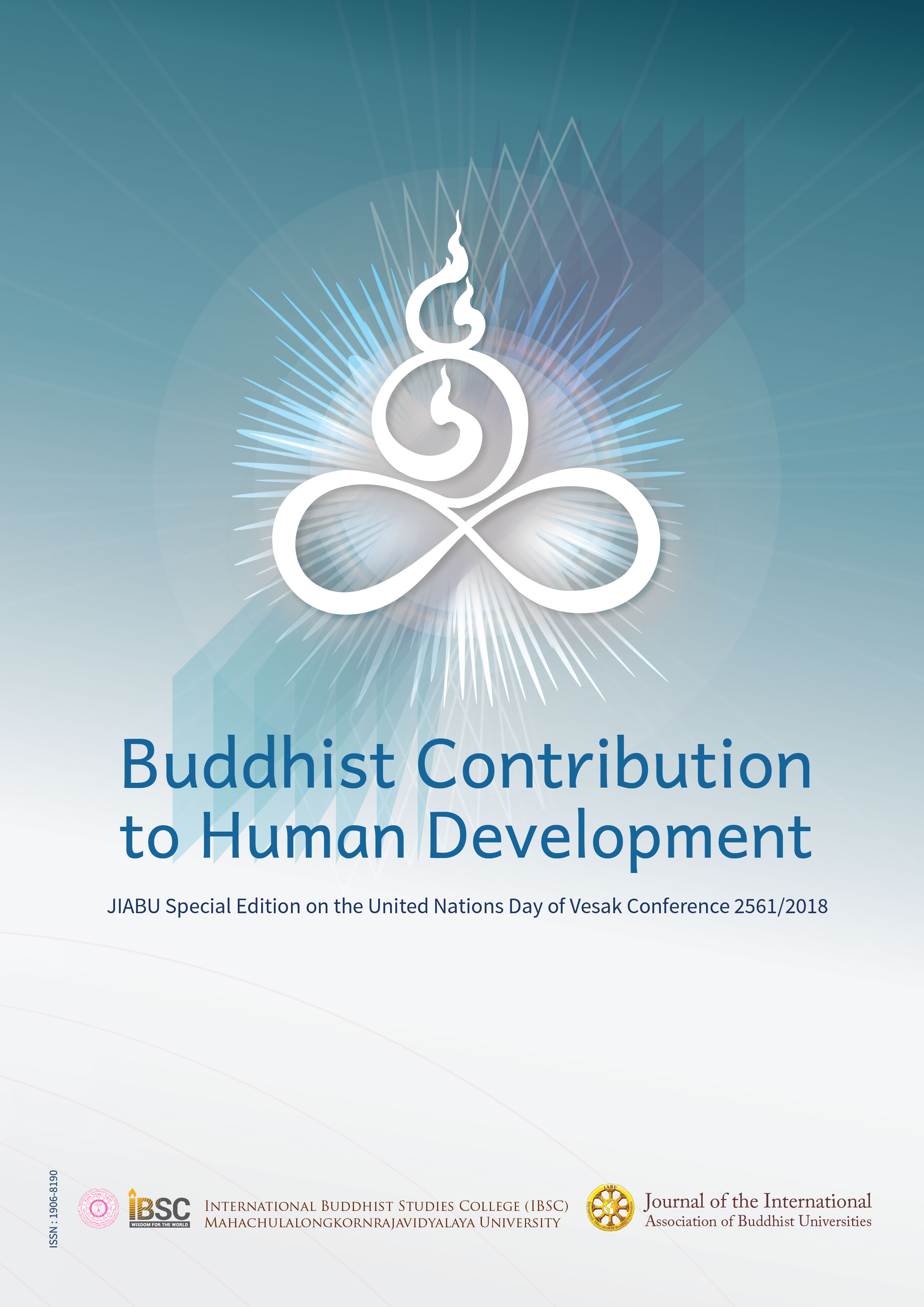A Comparison on the structure of Buddhist Sangha Administrative System Between Thailand and Vietnam
Main Article Content
Abstract
Since the fi rst day that the “Triple Gems” of the Buddha, Dhamma and Saṅgha had
been established, the Buddha disciples’ community was recognized as the people who will
perform the task of protecting and propagating the Buddha’s teachings after he passed into
Nibbana. Therefore, a solid and united Saṅgha is the most important factor which may help
to develop Buddhism. Here, any organization or association becomes solid when it is wellorganized or it gets a good administrative system. It is also the reason why Buddhist Saṅgha
needs a good and well-organized administrative system. In each Buddhist country, there are
many factors that make the structure of Saṅgha administrative system different from other
countries. Besides the differences, there are also some similarities even when we compare
the structure of Buddhist Saṅgha administrative system between two different countries. This
article is going to compare the structure of Buddhist Saṅgha administrative system between
Vietnam and Thailand since their beginning until now in order to show how is different
and similar on the structure of Buddhist Saṅgha administrative system between those two
countries. The article focuses on sub-topics such as the different historical background of
the establishment, the policies of the different government and the Saṅgha Act or Saṅgha
administrative regulation, etc., which make the differences and similarities on the structure
of the Buddhist Saṅgha administrative system between Thailand and Vietnam.
Article Details
Views and opinions expressed in the articles published by The Journal of the International Association of Buddhist Universities (JIABU), are of responsibility by such authors but not the editors and do not necessarily reflect those of the editors.
References
Health (Thai Happiness). Bangkok: Thai National Statistic Office.
Nguyen Cao Thanh. (2008), An outline of Buddhism in Viet Nam. Ha Noi: Religious
Publishing House.
Kanai Lal Hazra, Thailand: Political History and Buddhist Culture Influences Vol. 1, (New
Delhi: Decent Books, 2000), p. 15.
Suthorn Na-Rangsi. (2002), Administration of Thai Saṅgha: Past, Present and Future, The
Chulalongkorn Journal of Buddhist Studies. Vol. 1, No. 2 (2002).
Ame Kislenko. (2004), Culture and Customs of Thailand. London: Green-Wood Publishing
Group.
P.A. Payutto. (2012), Thai Buddhism in the Buddhist World. Bangkok: Chandrapen Publishing
House.
Promsuk Jerm Savatdi. (1977), Thai Art with Indian Influences. Bihar: The University of
Magadh.
Prof. Dr. Phra Dhammakosajarn. (2011), Regulation of Saṅgha Administration. Bangkok:
Mahachulalongkornrajavidayalaya University Press.
Davit K. Wyatt. (2003), Thailand A Short History. USA: Yale University Press.
Geo B. Bacon (2000), Intineraria Asiatica: Siam-The Land of the White Elephant. As it
was and is. Bangkok: Orchid Press.
Somboon Suksamran. (1993), Buddhism and Political Legitimacy. Bangkok: Chulalongkorn
University.
Acts on the Administration of the Buddhist Order of Saṅgha of Thailand-B.E. 2445, B.E.
2484, B.E. 2505. Thailand: Mahamakuta Educational Council.
Nguyen Lang. (2000), Essays on The History of Vietnamese Buddhism vol I, II, III. Ha Noi:
Literature Publishing House.
Tran Quang Thuan. (2014), Vietnamese Buddhism in the Modern Era, Facing with the
Challenges of the Modern Civilization. Hanoi: Hong Duc Publishing House.
Thich Tam Hai. (2003), Basic Buddhism, ed. The Central Board of Dhamma Propagation.
Ho Chi Minh city: The Religious Press.
Nguyen Khuong Dan. (2008), The Recovery of Vietnamese Buddhism in the 20th Century,
M.A Thesis. Bangkok: Mahachulalongkornrajavidayalaya University.
Le Cung. (2008), The Southern Vietnam Buddhism’s movement in 1963. Hue: Thuan Hoa
Publishing House.
Thich Duc Nghiep. (1995), Buddhism in Vietnam. Ho Chi Minh City: Ho Chi Minh city
Buddhist Saṅgha Council Press.
Constitution of the Socialist Republic of Vietnam Ed. 2013, Chapter I, Article 9.
Vietnam Buddhist Saṅgha-Executive Council. (2012), The Resolution of the 7th Congress
of Vietnam Buddhist Saṅgha. Hanoi: Vietnam Buddhist Saṅgha.


